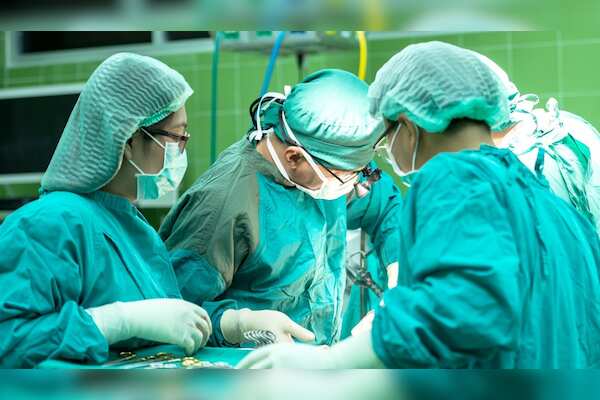In a groundbreaking medical achievement, the first successful kidney transplant from a genetically modified pig to a human patient has led to the early discharge of the recipient from the hospital. This remarkable outcome not only signifies a major advancement in the field of medicine but also opens up possibilities for cross-species organ transplantation in the future. The success of the pig kidney transplant in 62-year-old Richard Slayman has been a source of great hope and optimism for the medical community.
The transplanted kidney has been functioning effectively, performing essential tasks such as removing waste from the blood, producing urine, and regulating the body's fluid balance. This positive development has paved the way for potential advancements in xenotransplantation, where organs from genetically modified animals are used in human patients. The journey towards successful xenotransplantation has been a challenging one, with previous attempts at heart transplants from genetically modified pigs resulting in the unfortunate loss of patients. In both cases, the recipients ultimately succumbed to complications related to organ rejection by the immune system. However, the favorable outcome of the recent kidney transplant has injected new hope into the field of xenotransplantation. Richard Slayman expressed his gratitude for the exceptional care he received during his hospital stay and credited the medical team for his improved health. His early discharge from the hospital marked a significant milestone in his recovery journey and signaled a new chapter for both him and the medical professionals involved in his care. Dr. David Klassen, the chief medical officer for the United Network for Organ Sharing, emphasized the potential benefits of xenotransplantation for a large number of patients in need of organ transplants. While there are still concerns about the long-term success of the transplanted kidney in Slayman's body, Dr. Klassen remains optimistic about the future of xenotransplantation and its potential impact on healthcare. Looking ahead, further research and clinical trials will be necessary to validate the efficacy and safety of xenotransplantation in a larger patient population. Scaling up these procedures and integrating them into the healthcare system will present logistical challenges, including ensuring a reliable supply of organs from genetically engineered animals. The successful pig kidney transplant represents a significant step forward in the quest for alternative sources of organs for transplantation. As medical science continues to advance, the possibility of cross-species organ transplants becoming a widely available option for patients in need of life-saving treatments is becoming increasingly feasible. In conclusion, the recent success of the pig kidney transplant in Richard Slayman has brought hope and renewed optimism to the field of organ transplantation. As researchers and medical professionals continue to explore new frontiers in medical science, the potential for xenotransplantation to revolutionize organ transplantation and save countless lives remains a compelling and exciting prospect.Groundbreaking Pig Kidney Transplant Leads to Early Hospital Discharge: A Glimpse into the Future of Organ Transplantation
.png) 3 months ago
54000
3 months ago
54000
Related
Revolutionary Liver Transplant from Genetically Modified Pig...
1 month ago
19781
Massive Iceberg Breaks Off Brunt Ice Shelf in Antarctica: Th...
1 month ago
21853
Coping with Ecological Grief: Understanding, Support, and Se...
1 month ago
23065
Groundbreaking Technology Allows Machine to Read Thoughts in...
1 month ago
24944
Trending in United States of America
Popular
Epic Games Prepares to Revolutionize Mobile Gaming with Plan...
4 months ago
136840
Discover What Your Mobile Cover Reveals About You
4 months ago
136772
Bloomberg: Nintendo Switch successor will be released in ear...
4 months ago
136703
Tower Semiconductor wants to build $8 billion chip factory i...
4 months ago
136683
Google Reinstates Indian Apps on Play Store After Government...
4 months ago
136636
Subscribe Newsletter
Fill out the form below to subscribe to our news
© Newstia 2024. All rights are reserved









 English (US)
English (US)